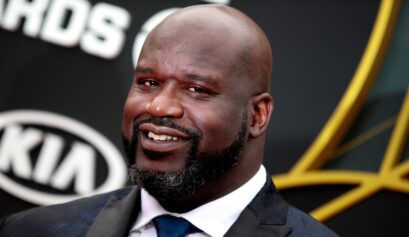While neo-soul singer Lyfe Jennings is currently embroiled in an uphill battle with his former record label Sony Music over finances, he has already re-recorded several of his previous hit songs and released new videos on YouTube.

The Comeback
Jennings recently revamped his hit songs, “Must Be Nice” and “Tell Me,” with AOU added to the title. The acronym stands for “Artist Owned Umbrella,” and means that a recording artist has revamped the song in an attempt to regain financial control of their music. Notable recording artists such as Taylor Swift have re-recorded albums to control and protect their music. Jennings’ move is already paying off — the video for “Must Be Nice” has gained over 480,000 views in the past four weeks, while “Tell Me” was released less than two weeks ago and already has 150,000 views.
Once called a “socially minded R&B singer,” Jennings has an estimated net worth of $500,000 and has released seven studio albums. His first album, “Lyfe 268-192” spawned hits such as “Must Be Nice,” which sold over one million copies and reached no. 9 on the Billboard Hot 200 Chart. Despite other albums such as “The Phoenix” and “Lyfe Change” featuring a slew of guest artists, Jennings never reached the same success as his first album. When his contract ended with Sony, he began recording with Warner Brothers.
Financial Disputes
Yet, 20 years later, Jennings and Sony are still at odds over finances. In recent interviews with TMZ and the podcast, “Bag Fuel,” Jennings shared that he believes Sony Music owes him an estimated $15 million.
“Alot of times you sign a contract and it is vague,” Jennings shared. “In the beginning you don’t realize how vague it is so if you don’t audit them in a three year period it is a wash. That’s what I’m going through twenty years later. I did not audit them.”
Jennings claims that Sony miscalculated some of his earnings from music videos and albums but because he did not perform a forensic audit within the three-year time period, the record company is not liable for the debt.
“It’s hard to take action because of the contract,” he added. “I don’t have as much to fight them. I can’t spend $1 million on lawyers but they can. I would love to have some of the money back.”




